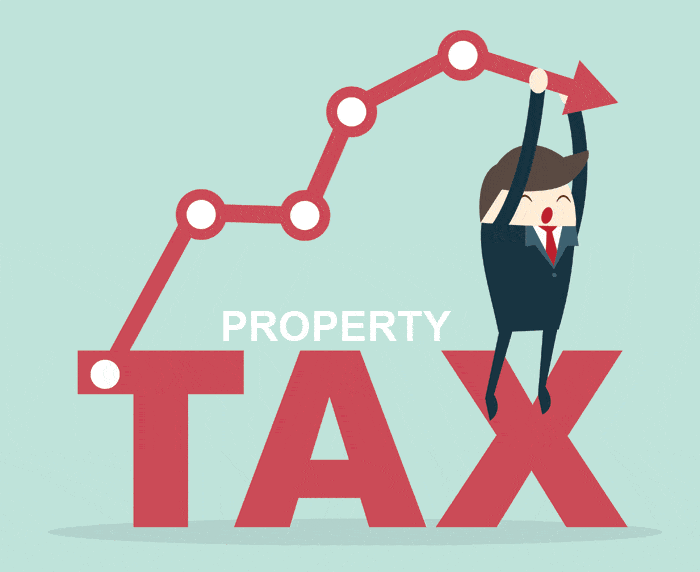Property taxes pay for numerous things within your community. From funding fire departments to maintaining local parks, to paying for schools, the revenue generated from property taxes goes towards making your community a better place to live.
Unfortunately, all that goodness doesn’t mean that your tax bill might seem a little bit on the high side.
Although beneficial, property taxes can be a financial burden – especially as they have the tendency to rise steadily over time.
While you’ll always have to pay your taxes, you can get a break. Here are a few simple ways to lower your property tax bill to a more manageable level, while still supporting your community.
Understand Your Bill
Before you can do anything to change your tax bill, you need to understand where the numbers come from.
Property taxes are calculated by using two numbers: the tax rate, and the current market value of your property. The tax rate is set by law, and although it can change every year, there’s nothing you can really do about your municipal tax rate.
So, if you’re looking to change your property taxes, you’ll need to focus in on your home’s current market value.
Determining Value
To determine your home’s current value, an assessor, hired by the local government, reviews your property. The assessor may actually come to your property; however, they often value your property remotely, using old records, software, and tax rolls. That’s why it’s important to review the inventory your town or county has for your home. Things like an extra bathroom, an old deck or inground pool which no longer exists can cause your tax bill to be higher than it should. These records are available on your assessor’s website for most, some homeowners may have to pay a visit to their local town or county offices.
Once your property’s value is determined, the tax office multiplies said value by the tax rate, then sends you the bill.
Making a Change
So, how can you change your tax bill? The only real way is to get an assessor to adjust the perceived market value of your home.
A Property’s Market Value is based on a few factors, many of which are relative. The market value takes into consideration everything from the structural wellbeing of your property, any recent sale prices, the sale prices of other comparable homes in the neighborhood and even your home’s “curb appeal” – or how nice it looks from the outside when you first see the home from the curb.
Some of these things, such as sale prices of other homes, are out of your control, however, you can make sure that any other facts that are determining the value of your home are correct and up to date. Go down to the tax assessor’s office and ask for your tax card. It’s a compilation of all the information the municipality has collected about your property over time, from lot size to room dimensions to features, fixtures, and renovations.
Review the card and point out any discrepancies – they’re more common than you think, and the tax office has an obligation to correct them and reassess your home.
If everything’s in order, then it’s time to go a bit deeper to update your tax bill.
Look to Your Neighbors
Home values are available to the public at the tax office, so when you’re going to check your own tax card, have a glance at other homes in the neighborhood. While you can’t change the property value of your neighbors, you can use their bills as a base argument for your own.
For example, let’s say your four-bedroom, single car garage home is valued at $500,000, yet your neighbor’s four-bedroom, two-car garage home with a swimming pool was only valued at $375,000. That discrepancy is a very convincing argument to get your local tax assessor to re-evaluate your home – preferably, this time, on an in-person walk-through.
Check for Exemptions
Look to see if you qualify for a tax exemption. New York State Property Tax Exemptions include:
- STAR (School Tax Relief)
- Senior citizens exemption
- Veterans’ exemption
- Exemption for persons with disabilities
- Exemptions for agricultural properties
Walk This Way
When you’ve got a tax assessor coming to your home, you should be there every step of the way. You don’t want the evaluation to focus on only the visible, positive features of your home. A new fireplace or marble counters can easily outshine old windows or small cracks in the ceiling, so you’ll want to be there with the assessor to be sure that both the positive and negative qualities of your home are being counted towards its perceived market value.
File a Tax Grievance
If you’ve done all you can and haven’t managed to get your tax assessment office to lower your property tax, you still have the option of filing a tax grievance. A property tax grievance is a formal complaint, filed on your behalf, against your town’s assessed value on your property based upon comparable sales. This is the most effective way for most homeowners to reduce their tax bill.
You don’t have to do it alone either. Heller & Consultants Tax Grievance has achieved record reductions in property tax savings for homeowners in Nassau County and Suffolk County. Apply online today.

